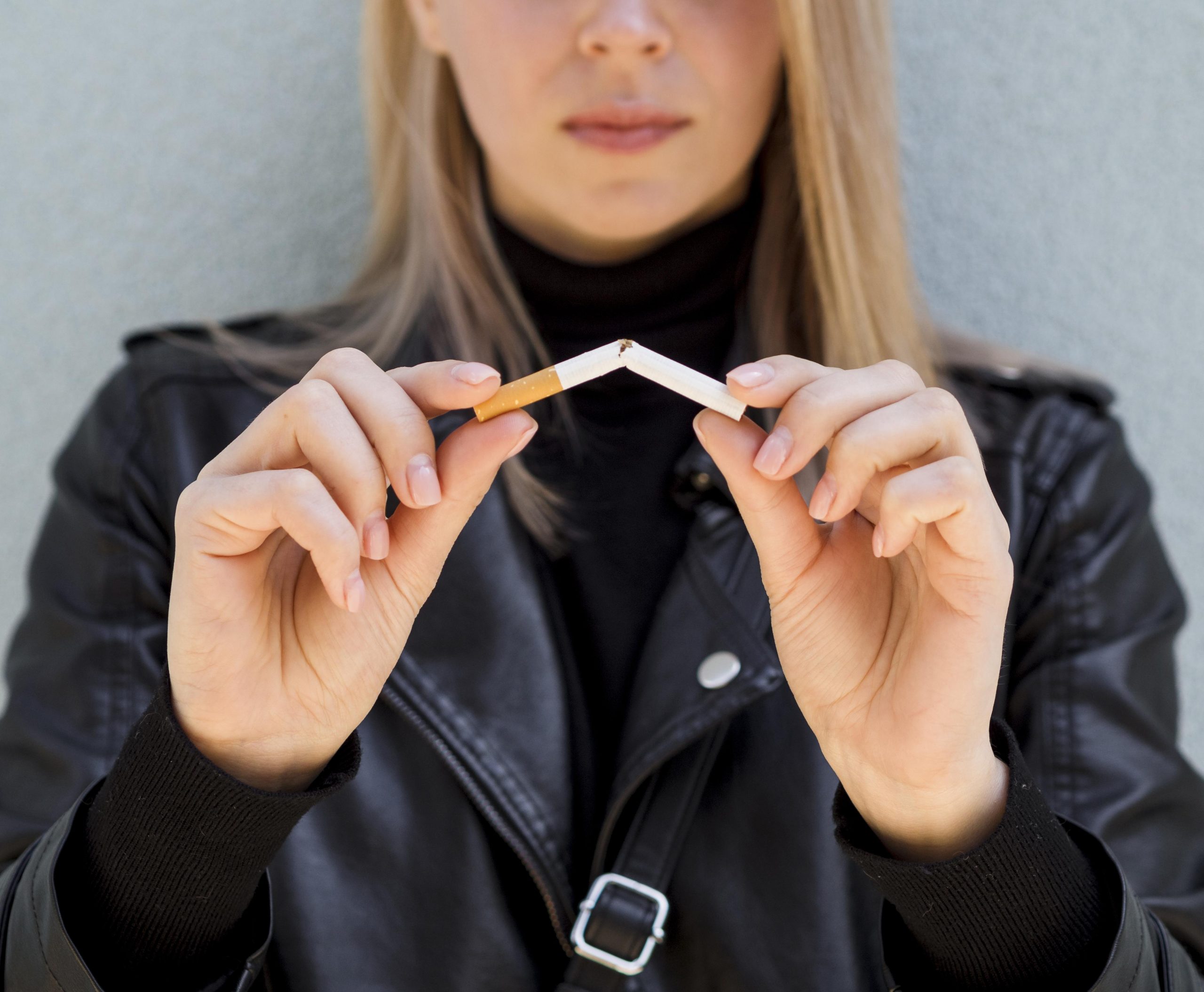
Vaping and e-cigarettes have risen in popularity in recent years as an alternative to smoking cigarettes and tobacco. However, while they have helped many people wean themselves off other forms of smoking, they have not been a friend to oral health. This is for many reasons. E-cigarettes and vaping are often marketed in a way that is attractive to teenagers and younger people in particular. They are enticed by the wide range of fruity, sweet flavours that are now available, as well as the colourful packaging.
So, why is vaping so bad for oral health and oral hygiene? Here are a number of reasons why your teeth and gums will thank you if you reduce your reliance on vaping and pay more attention to maintaining healthy gums and teeth instead.
Nicotine can lead to gum disease and tooth loss
When you vape, you still take in some nicotine – some varieties are nicotine-free, but most still contain at least some of this highly addictive ingredient. Nicotine is bad news for oral health. It can lead to gum disease as it restricts the blood flow to the gums and prevents the mouth from fighting infection quite so effectively. Nicotine can also be a causal factor of more serious conditions such as oral cancer and tooth loss. As well as the physical dangers these present, there is also the mental health side effects of not being able to be proud of your smile, teeth or gums and feeling self-conscious every time you open your mouth. Even if you have implants, bridges or other cosmetic dentistry, vapes and nicotine can threaten these expensive additions, decrease their brightness and shorten their lifespan inside the mouth.
Enamel and soft tissue can also be affected
Many vape juice recipes include propylene glycol, which is safe to inhale, but can cause damage to tooth enamel and soft tissue inside the mouth. It can also affect the amount of saliva produced, which can lead to dry mouth, bad breath and a higher risk of developing cavities. Saliva cannot be replaced by drinking more water. It contains compounds that protect the teeth against harmful bacteria. Even if you use artificial tooth whitening techniques to make the enamel look good, the effects of propylene glycol can be severe if you expose it to vape juice too often, or for too long. Of course, if you try to remedy a dry mouth with fizzy drinks or soda, this also leads to increased risks of cavities.
Glycerine and sweet flavours stick to the teeth
Just as we are advised to reduce contact with sugar and artificial sweeteners to a minimum for optimum oral hygiene, so we need to be aware of some of the other ingredients in vapers and e-cigarettes. The sweetness in the juice is created by adding glycerine and other flavourings to enhance the taste – while attacking enamel and sticking to the surface of the teeth. Vapes can also discolour the teeth, even without the presence of tar. This is because the liquids can trap stains in the enamel, making them very difficult – if not impossible – to remove. Finally, having regular access to sweet tastes can encourage people to indulge more in other sugary treats that are bad for the teeth. Rather than being occasional treats, confectionary, cakes and biscuits can sneak into the diet more often as the sweeter taste of the vaping juice becomes a more regular part of the daily routine.
Other oral hygiene risks from vaping and e-cigarettes
The vape device itself can also cause a risk to a person’s oral health. Vapes and e-cigarettes are often powered by lithium batteries. These can malfunction, although this is rare, and cause burns and damage to the face and mouth. Vaping devices must be looked after correctly and operated, stored and refilled according to manufacturers’ instructions. Vaping can also encourage teeth grinding, as you become accustomed to manipulating and moving the vape around while it is inside your mouth. Always tell your dentist if you vape or use e-cigarettes. They can then advise you on how to prevent gum disease, look after your oral hygiene and minimise the negative impact that the activity has on your wider oral health.